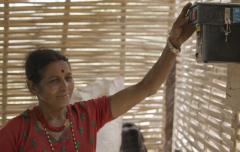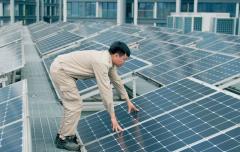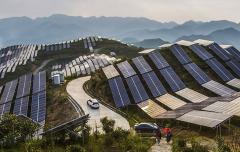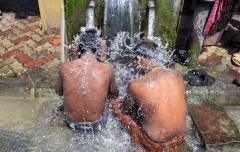Cooling a hot topic during the Asia Clean Energy Forum
While 1,300 delegates attended the Asia Clean Energy Forum (ACEF 2019) in Manila in mid-June, India suffered yet another heat wave, causing the death of at least 137 people. With heat waves becoming more frequent all around the globe, the topic of sustainable cooling for all received specific attention during this event hosted by the Asian Development Bank (ADB).
Sustainable Energy for All (SEforALL) experts participating in the event delivered key messages on the future of cooling, presented a new approach for integrated electrification planning and discussed the importance of shifting investments towards clean energy.
Rethinking the future of cooling
SEforALL co-organized a workshop on The Future of Cooling –Promoting Sustainable Cooling through Technology and Policy Innovation that brought together representatives from governments, private sector, financial institutions and international organizations to discuss the challenges of sustainable cooling.
“1.1 billion people without access to cooling face increasing risks to their health and their productivity because they can’t store fresh food, receive a safe vaccine, or find shelter in a heat wave”, said Clotilde Rossi di Schio, SEforALL Cooling Specialist, during her presentation.
Based on the findings of the SEforALL report Chilling Prospects: Providing Sustainable Cooling for All, Rossi di Schio said governments need to understand who is most at risk and must develop national cooling plans to address the needs of these vulnerable people: the rural poor, slum dwellers and middle income ‘carbon captives’.
“We need to see cooling needs in a broader perspective, not just focus on the cooling of buildings and urban environments, but also agricultural and medical cold chains,” said the expert.
Integrated electricity planning
During the deep dive workshop Achieving Universal Energy Access in the Asia Pacific Region, co-organized by ADB and SEforALL, SEforALL presented its new Integrated Electrification Pathways for Universal Access to Electricity: A Primer report as well as a video case study that highlights last-mile electrification options in Nepal.
“Electricity planning is often thought of in terms of models and data. However, the focus on socio-economic development needs, stakeholder engagement, links to supportive policy and appropriate finance are factors that distinguish the Integrated Electrification Pathways approach,” said Mikael Melin, SEforALL Senior Energy Access Specialist.
Financing the energy transition
Another topic high on the agenda of the ACEF 2019 was the financing of the energy transition. The Shifting Financial Flows to Invest in Low-Carbon Development in Southeast Asia (SHIFT SEA) project partners, a consortium of international energy and climate experts including SEforALL, presented priority actions to accelerate growth and deliver a bright future based on reliable, affordable and sustainable energy. The partners also look forward to contributing to the upcoming revision of ADB’s Energy Policy, an opportunity to support ADB with its goal to become Asia Pacific’s leading climate bank.
The SHIFT SEA partners co-hosted a well-attended networking event with Signify (formerly Philips Lightning) to promote energy efficiency and to present a video about the necessary shift in finance towards zero carbon development in Indonesia, the Philippines and Vietnam. Watch the video.




